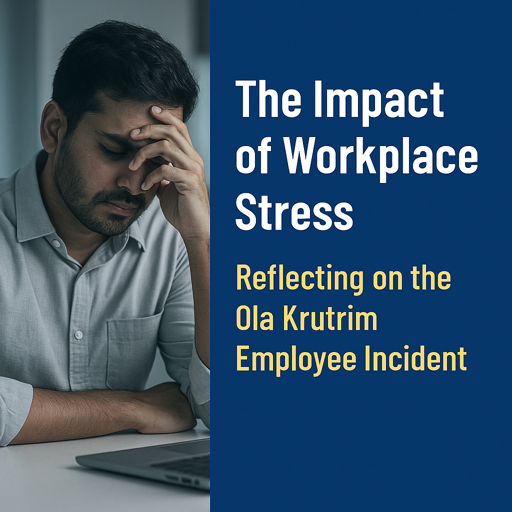Working long hours in front of screens? Feeling drained or burnt out in your tech job? Learn how to create a personalized self-care routine tailored for software engineers, DevOps professionals, and IT workers in 2025 to stay focused, healthy, and productive.
Why Self-Care Is Now a Survival Skill
The IT industry has always demanded speed, precision, and adaptability. But in 2025, with the rise of remote work, on-call rotations, AI advancements, and continuous deployments, many developers, sysadmins, and cloud engineers are experiencing burnout, stress, and even mental health breakdowns.
You’re constantly debugging, deploying, and catching up with updates—and somewhere along the way, your health takes a hit. That’s why self-care for IT professionals isn’t just a buzzword; it’s a daily necessity.
Common Issues Faced by Tech Workers:
- Screen fatigue and eye strain
- Poor posture and body pain
- Mental exhaustion and burnout
- Irregular sleep and skipped meals
- Minimal work-life separation, especially when working remotely
If your body is your hardware, then self-care is the system update that keeps you running.
Step-by-Step: How to Create a Self-Care Routine
1. Prioritize Physical Health
Your body is taking a silent hit during those 8–12 hour desk marathons. Here’s how to fix that:
- Use the 20-20-20 Rule: Every 20 minutes, look at something 20 feet away for 20 seconds.
- Invest in Ergonomics: An adjustable chair, standing desk, wrist support, and screen at eye level can change everything.
- Mini Workouts: Add 15-minute morning stretches or yoga to open your joints before the workday.
- Daily Walks: Even 30 minutes of walking reduces sedentary risks and boosts mood.
2. Set Healthy Work-Life Boundaries
Remote workers especially fall into the trap of being “always online.” You need hard cutoffs:
- Use “shutdown rituals” to end your workday—like writing a to-do list for tomorrow, logging off tools, or a short walk.
- Set “deep work” blocks without meetings to focus better and reduce stress.
- Turn off email and Slack notifications after work hours. Your brain needs a break.
3. Take Care of Your Mental and Emotional Well-Being
You might be solving hard problems at work—but are you solving what’s going on in your mind?
- Use apps like Headspace, Insight Timer, or Calm to meditate for 5–10 minutes daily.
- Try digital journaling to track emotions, progress, or stress triggers.
- Practice the Pomodoro Technique (25 minutes work, 5 minutes break) to stay mentally fresh.
4. Eat Like a Coder Who Cares
Food is fuel. You wouldn’t run your code on a dying server—so don’t do that to your body.
Limit caffeine; hydrate often (set water reminders using apps or smartwatch alerts).
Avoid junk-food coding marathons. Keep healthy snacks nearby (nuts, fruits, yogurt).
Set calendar reminders to eat proper meals, especially during deep work.
5. Social Wellness for the “Always Online” Engineer
Even introverts need connection. Tech life can feel isolating—especially remote work.
- Join tech communities on Slack, Reddit, or Discord.
- Schedule weekly catch-ups with friends or mentors—non-work talk is essential!
- Volunteer for a coding bootcamp or mentor juniors—it boosts your confidence and emotional health.
Sample Daily Self-Care Routine – Ideal for Remote or Hybrid IT Professionals
| Time | Activity |
|---|---|
| 7:00 AM | Wake up, water, 10-min stretching |
| 7:30 AM | Light walk or meditation |
| 8:30 AM | Healthy breakfast, start coding session |
| 11:00 AM | Screen break + water + 2-min eye relaxation |
| 1:00 PM | Lunch (away from screens) + short walk |
| 3:00 PM | Deep work + Pomodoro + healthy snack |
| 6:00 PM | Shut down system + physical activity |
| 8:00 PM | Relaxing routine (reading, friends, music) |
| 10:00 PM | Screen-free time + prepare for bed |
Final Words: Your Career Is a Marathon—Not a Sprint
In tech, we optimize everything—code, speed, delivery—but often forget to optimize ourselves.
A simple 15-minute self-care habit can make you sharper, more creative, and prevent long-term health issues.
Your best code will come from a rested brain. Your sharpest ideas from a peaceful mind.
Don’t ignore the warning signs. Start today.
Next Steps
- Follow our DevOps tutorials
- Explore more DevOps engineer career guides
- Subscribe to InsightClouds for weekly updates
- Subscribe our DevOps youtube channel

Leave a Reply